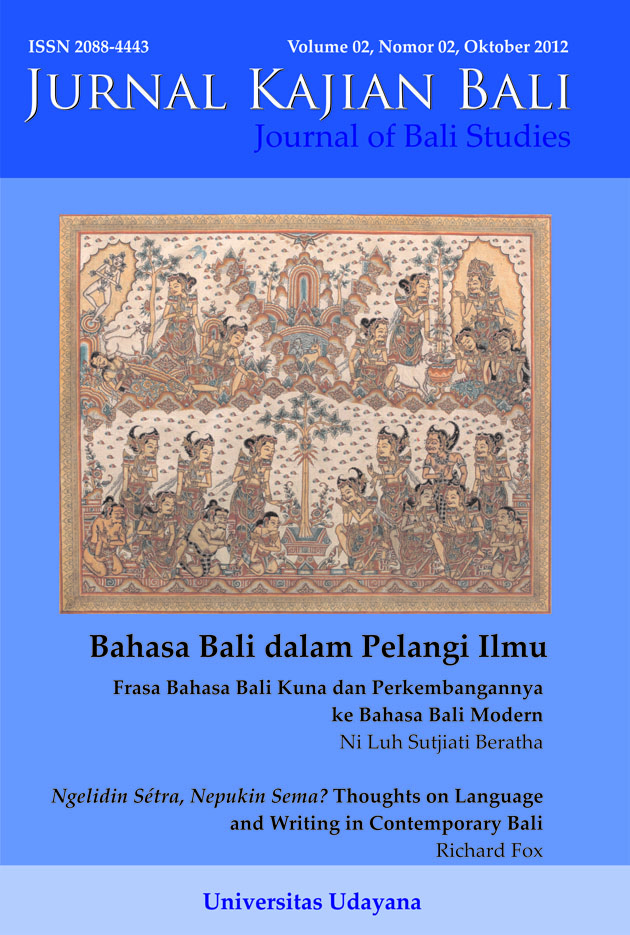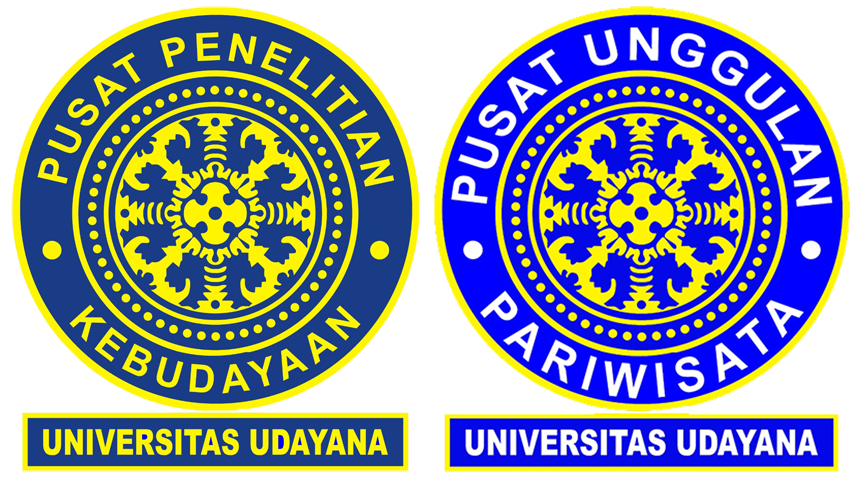Ngelidin Sétra, Nepukin Sema? Thoughts on Language and Writing in Contemporary Bali
Abstract
Abstract
Recent decades have seen a shift in Balinese sensibilitiesregarding the use of the island’s traditional script, andof the texts that are written in that script; and this shiftappears to be linked to a series of wider-reaching changesin the way people set about embodying, cultivating andcontesting shared ideals of agency, community and thecollective good.1 That is to say there seems to be a linkbetween, on the one hand, the material practices of scriptand writing and, on the other, broader styles of what Iwould call social and practical reasoning. I wish to suggestthat this empirical observation may have some ratherimportant implications for how we think about culturalpreservation, and perhaps especially the challengesfacing those working to safeguard the future of Balineselanguage, script and literature. I would like to present thisargument with specific reference to the idea of ‘languageendangerment’, not only on account of its prominence incurrent debates on language and cultural heritage, but alsoas the questions it raises have special bearing on the issues at stake in contemporary Bali. The recent controversy overthe place of Balinese language instruction in the NationalCurriculum offers a useful way into the problem.
Downloads
Keywords

This work is licensed under a Creative Commons Attribution 4.0 International License.



















